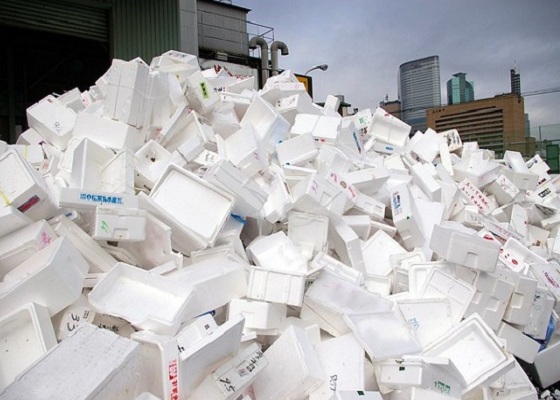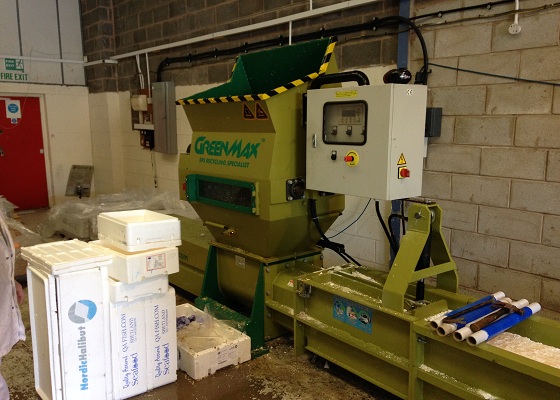Fish merchants use GREENMAX to break through foam recycling dilemma in the UK
Almost 100% of Foam can be recycled. Foam should have been recycled and converted into new products, but in the UK it is actually being used to burn electricity and produce pollution.
A source told “The Times” that people were diligently putting boxes, packaging and pallet waste made of foam into roadside recycling bins, more than half of which could be sent to incinerators. The problem stems from the fact that there are not enough professional foam recycling factories in the UK, especially after the ban is imposed in China, it is impossible to ship the waste to China for processing.

For fish merchants, this situation is bothering them. The quality of Foam's water-insulated insulation is the best material for making fish boxes. The fish boxes that are discarded every month in a fishery market are calculated in tons. These boxes take up a lot of space and are inefficient to transport, but it is difficult to find a suitable recycler in the UK to recycle the fish boxes.
In order to solve the problem of the fish boxes, the fish merchants chose the latter after considering whether to directly discard and pay the garbage disposal fee or recycle it by themselves. They chose to purchase a GREENMAX A-C200 that foam compactor machine various foam waste into a compact size. With a compression ratio of 50:1, the waste foam is compacted and forms a recycled foam blocks, easy to transport and storage in the warehouse.

At the same time, GREENMAX promises that will buy back recycled foam blocks for granulation and regeneration to produce a variety of frame products. This is one of the main reasons why fish merchants choose GREENMAX machines.

The UK's foam recycling dilemma has been broken by fish merchants using new recycling methods, while introducing another new profit model.
